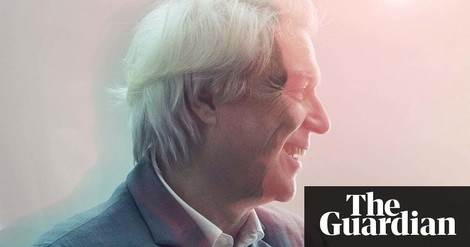Your podcast discovery platform
Curious minds select the most fascinating podcasts from around the world. Discover hand-piqd audio recommendations on your favorite topics.

piqer for: Global finds Globalization and politics Technology and society
Turkish journalist, blogger and media expert. Writes regular columns for The Arab Weekly and contributes to Süddeutsche Zeitung, El Pais and the Guardian. An European Press Prize Laureate for 'excellence in journalism' in 2014, Baydar was awarded the prestigious 'Journalistenpreis' in Germany by Südosteuropa Foundation in February 2018.
After 40 Years, 'Talking Head' David Byrne Still Promotes Utopia
It could be said that the time between the release of The Wall, in December 1979, and Remain In Light, in October 1980 was a turning point for rock music, one among many. Both albums by the Talking Heads were masterpieces. What was striking was that this band from New York was so far ahead, pushing the punk and post-punk movements with such awareness, wisdom and creativity, that they became the pioneers of a brand new era. This era gave birth to a generation of bands that composed an elegant layer of music based on a new aesthetics, marked by sophistication, and post-beat poetry.
Scotland-born David Byrne was the spiritual force behind the band. He had formed the Talking Heads in the punk-era, in Rhode Island, with Tina Weymouth, Chris Frantz and Jerry Harrison, and their remarkable journey began in dowtown Manhattan.
They were chronologically punk, but spiritually post-punk, determined to dismantle the clichés of rock’n’roll and write their own rules. “No rock moves or poses, no pomp or drama, no rock hair, no rock lights, no rehearsed stage patter,” Byrne wrote in How Music Works. They questioned everything. What is a rock band? What is a pop song? Why this? Why not that?
Now, after 14 years, Byrne published a new album, titled American Utopia, that sounds like a paradox, almost a joke, as compared to what's going on in the world. He is also busy touring and sort of trying to disperse the gloom of people, with a series of powerpoint lectures, titled 'Cheering People Up' —lining up examples of projects that he hopes will lighten up our existence on planet earth.
Utopia, for Byrne, is not a particular place or system, but an aspiration. “It’s more about our yearning for something better,” he says. “We keep asking ourselves: is there another way to live or is this the only way? Did we have to end up like this or could it have been different?”
Here, he explains what he thinks of our direction as humankind, and where he sees himself among us.
